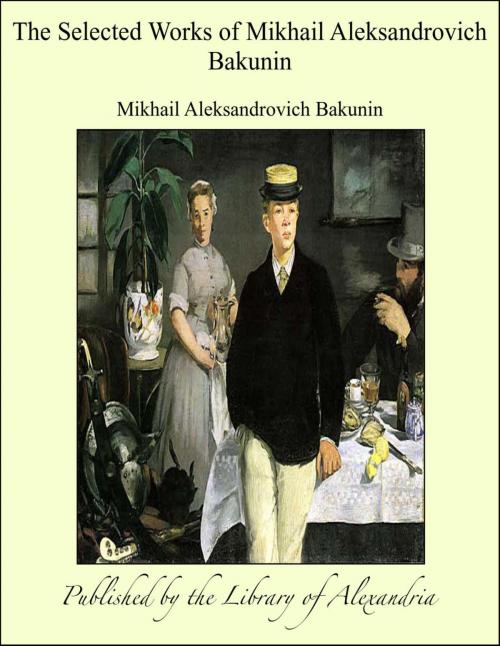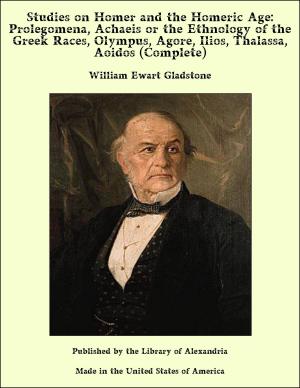The Selected Works of Mikhail Aleksandrovich Bakunin
Nonfiction, Religion & Spirituality, New Age, History, Fiction & Literature| Author: | Mikhail Aleksandrovich Bakunin | ISBN: | 9781465573179 |
| Publisher: | Library of Alexandria | Publication: | March 8, 2015 |
| Imprint: | Language: | English |
| Author: | Mikhail Aleksandrovich Bakunin |
| ISBN: | 9781465573179 |
| Publisher: | Library of Alexandria |
| Publication: | March 8, 2015 |
| Imprint: | |
| Language: | English |
In Russia among the students, in Germany among the insurgents of Dresden, in Siberia among his brothers in exile, in America, in England, in France, in Switzerland, in Italy, among all earnest men, his direct influence has been considerable. The originality of his ideas, the imagery and vehemence of his eloquence, his untiring zeal in propagandism, helped too by the natural majesty of his person and by a powerful vitality, gave Bakunin access to all the revolutionary groups, and his efforts left deep traces everywhere, even upon those who, after having welcomed him, thrust him out because of a difference of object or method. His correspondence was most extensive; he passed entire nights in preparing long letters to his friends in the revolutionary world, and some of these letters, written to strengthen the timid, arouse the sluggish, and outline plans of propagandism or revolt, took on the proportions of veritable volumes. These letters more than anything else explain the prodigious work of Bakunin in the revolutionary movement of the century. The pamphlets published by him, in Russian, French, and Italian, however important they may be, and however useful they may have been in spreading the new ideas, are the smallest part of Bakunin’s work.
In Russia among the students, in Germany among the insurgents of Dresden, in Siberia among his brothers in exile, in America, in England, in France, in Switzerland, in Italy, among all earnest men, his direct influence has been considerable. The originality of his ideas, the imagery and vehemence of his eloquence, his untiring zeal in propagandism, helped too by the natural majesty of his person and by a powerful vitality, gave Bakunin access to all the revolutionary groups, and his efforts left deep traces everywhere, even upon those who, after having welcomed him, thrust him out because of a difference of object or method. His correspondence was most extensive; he passed entire nights in preparing long letters to his friends in the revolutionary world, and some of these letters, written to strengthen the timid, arouse the sluggish, and outline plans of propagandism or revolt, took on the proportions of veritable volumes. These letters more than anything else explain the prodigious work of Bakunin in the revolutionary movement of the century. The pamphlets published by him, in Russian, French, and Italian, however important they may be, and however useful they may have been in spreading the new ideas, are the smallest part of Bakunin’s work.















